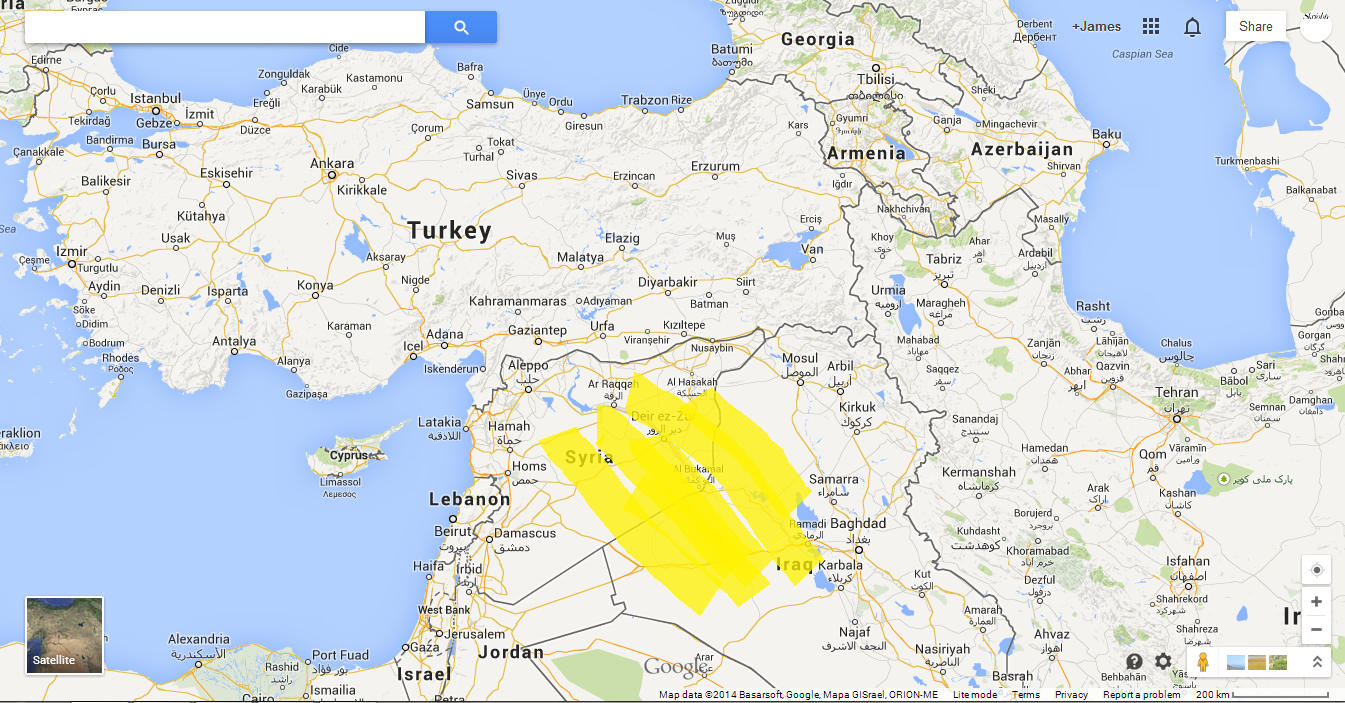The Syrian conflict provides for the discernment of a restructured world, where the nation-state, its flags and bunting are abandoned. The number of stakeholders and the diversity of their make-up and the multitude of ideologies prevents any easy form of definition. It's in this myriad of postmodern-labelling that the realities of violence are presented.
The history of the nation is relevant: some of the difficulties stem from the imposition of a government of disputable legitimacy by the French in 1936. Their withdrawal in the 1940's was followed by a long period of instability, governments lacking authority and the repeated failure to provide for political institutional development. The lack of understanding of the various sects of Islam on the part of the French had a role in the country's difficulties. The 1970's saw the Assad family come to power, who are of the Alawite sect, which takes influence from Shia Islam. They have opposing beliefs to Sunni Muslims about the appropriate leaders within the faith which has been a source of contention between the groups throughout the development of Islam. The division between the two groups in Syria is roughly 13% Alawite and 70% Sunni.
Sunni Muslims, lacking political expression and angered by the Assad family's single-party regime and authoritarian approach banded together to create the Free Syrian Army (the FSA). Their goals reflect some of the shared values seen throughout the Arab Spring. A former colonel with the Syrian Air Force, Riad al-Assad is thought to be the leader of this group. The FSA are seen as religious and political moderates within the conflict. On a spectrum of religious fundamentalism, they're seen as the least religiously motivated.
 |
| Sunni Muslims make up the largest religious group within the country. They occupied large portions of the military command before defecting to fight with the FSA. |
The video below from the channel 'Akhbar Sham', displays the Chechen rebels fighting in Allepo province, to the north of Damascus. Russian chatter can be heard over the radio. The Chechens distinguish themselves from other groups fighting in the war by their clear uniform and more disciplined fighting style.
The Soviet Union had the effect of stifling religious and political expression and denied the group the opportunity to develop autonomy from Moscow. Chechen rebels also will also be taking the opportunity to gain experience and practise techniques ready to return to Chechnya with new skills and a new ability to strike back at Russian troops.
 |
| Chechnya: predominantly Muslim and has fought for Chechen independence from Russia in two wars since the breakdown of the USSR in the early 1990's. |
To the west of Syria, Hezbollah has continued to support the Assad government in their battle against opposition forces. Hezbollah has received weaponry and financing from the Iranian government, angering Israel and has been the target of air-strikes as well as the 2006 incursion by Israel into the Golan Heights. The Golan Heights are the much-disputed geographical border of mountainous land between Syria, Israel and the Lebanon. Hezbollah are predominantly Shia and the Assad government provides greater support for Shia Islam in the region, to the detriment of Sunni Muslims.
 |
| The Lebanon is one of the most ethnically diverse places in the world. Hezbollah is thought to have a superior fighting force than the Lebanese army and has received support for decades from Iran. |
What frightens countries in the EU is the Islamic concept of brotherhood throughout the religion, rather than on a statehood basis. Thus, an attack on Islam is an attack on the brotherhood. Those travelling from western Europe to train and fight with the rebels are seen as a possible threat to government if they ever return. An example of one of those with a high-profile has been Yilmaz, a Dutch national who trained as a soldier with the Dutch army before leaving for Syria. During an interview with a Dutch television network, he set out his reasons for joining the conflict and his role in training rebels. which can be viewed here. He also runs Ask.fm and Tumblr accounts.
The presence of Chechens, Hezbollah and the Kurds along with a scatter of European Union citizens in the war will have implications far beyond the governance of Syria. Using the conflict as a war-by-proxy, the regional stakeholders such as Iran, the EU and Russia will have to take a hard look at their involvement in the war. The inadequate map-drawing by colonial powers facilitated authoritarian and repressive regimes to take control of land, people and power and prevents meaningful social engagement. The nation-state as the modern world knows it fails to have influence in a crisis dominated by non-state actors. The concept of national self-determination needs to be reconfigured if there is to be a meaningful politics in the Middle East.




No comments:
Post a Comment